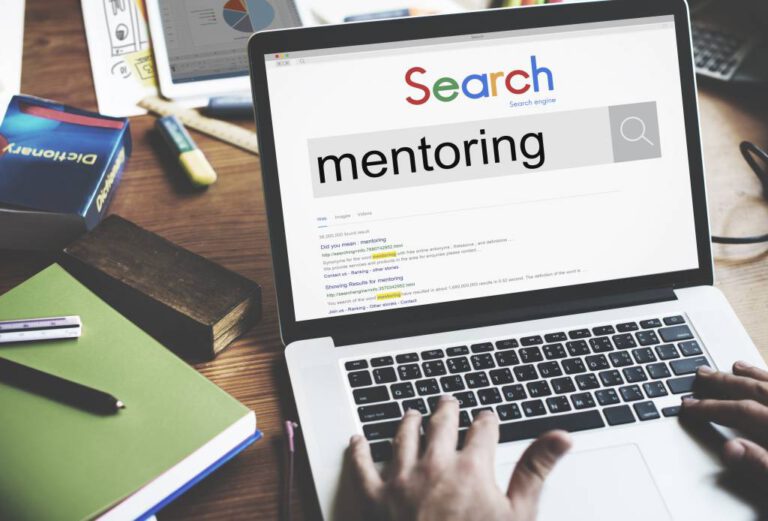Mentoring is one of the top strategies for career development and advancement within an organisation. It is also a critical support for people making career changes and transitions.
Career Coaches are often called upon to recommend mentoring, and to know about the information clients need to find a suitable mentor, as well as how to get the best out of the mentoring process. At the Career Counselling Services (CCS) Alumni event in June 2013, I ran a practical and interactive session, around the strategic role of mentoring in career development, the steps needed to make it work in practice and the guidance and support that individuals need.
The Role of Mentoring in Career Development – Slides from the session
Here is the presentation I used in the session
Summary of the Session
And here is the write-up of the session by Rob Nathan of CCS.
The role of mentoring in career development
Richard Branson reputedly said: “If you ask any successful business person, they will always have had a great mentor at some point along the road.”. As people offering career coaching and counselling, we are often called upon to recommend mentoring, and to know about the information clients need to find a suitable, as well as how to get the best out of the mentoring process. We may also be asked how to set up a mentoring probate. We may also be mentors (and mentees. Read on).
Antoinette presented several views of mentoring: “an alliance that creates space for dialogue”, “developing insight to turn hindsight into foresight”, “a synergistic relationship”, and ” a partnership between a less experienced mentee and a more experienced mentor, who uses his professional and life experience to help the mentee develop and advance their career”. She summed it up by saying that, for her, its “learning through sharing”
Like other modes of support, mentoring has both a traditional and contemporary paradigm. In the traditional mode, the mentor:
- picks a protege
- Is more senior
- Is older
- Tells you what to do and how to do it
- Has a lot in common with you
And, you are either a mentor or mentee.
The more modern paradigm suggests:
- The mentee seeks mentors
- Mentors may be younger
- Difference provides potential for greater discovery, challenge and growth
- Mentoring is for anyone, at any stage if life
- A mentor is a sounding board
- Mentors assist your decision-making and problem-solving
- You can be both a mentor and a mentee.
Antoinette likened mentoring to a dating relationship. One person has the skills, experiences and mindset you are looking for. It involves matching and sharing. It is not one size fits all. Anticipating the inevitable question of the difference between mentoring and coaching, she saw coaching as appropriate ‘when there is a well-defined goal that is based on improving skills and performance’ and mentoring as ‘appropriate for career planning, setting and achieving goals, making decisions and facilitating problem-solving’.
It was pointed out that there are differences in the way the USA and the UK see and practice mentoring and coaching. In the US, there is a clear separation, whereas, in the UK, there is more of an overlap.
There do seem to be some very practical benefits associated with mentoring. Antoinette cited widened professional networks, enhanced training and career development and the avoidance of obstacles and pitfalls. To me, this implies a degree of guidance, information giving and using the benefit of experience. If I hire a marketing mentor, a book writing mentor, or an IT mentor, I am expecting to benefit from my mentor’s experience, knowledge and networks. In other words, I want to use my mentor’s connections and resources
Antoinette challenged us to think of who do we mentor, and who mentors us. A useful step in seeing that we are already being mentors and mentees – so we already have the resources to consciously seek to be in either role again.
And the case for becoming a mentor? Apart from the satisfaction of helping others, you will developing your own networks, gain recognition and appreciation for your own skills and experience, acquire a deeper and broader knowledge of the organisation or profession, and have higher visibility yourself – not a bad job description.
Antoinette went on to distinguish formal and informal mentoring. She described a process with the mnemonic A.S.K.: appreciate, seek and know-how. I took this as meaning, on the hoof, look out for opportunities to appreciate others’ know-how, seek out those with the experience you are hoping to learn from and think about how you can share your own knowledge, experience and contacts in return (not a bad management skill).
Formal mentoring involves a staged process of Engagement, Training, Matching and Support/Evaluation. She stressed the importance of training mentees as well as mentors and outlined the value of the Solutions Focus OSKAR model* (Outcome, Scaling, Know-how, Affirmation/action, Review) as a helpful framework for mentors. The Know-How component of OSKAR focuses not only on helping the mentee identify their own knowledge, skills and experience. It also allows for sharing the know-how of the mentor. This kind of ‘self-disclosure’ seems appropriate, given that it is done within the boundaries of the mentoring contract/goals.
(*The Solutions Focus by M McKergow and Paul Z Jackson, 2006, N Brearley)



